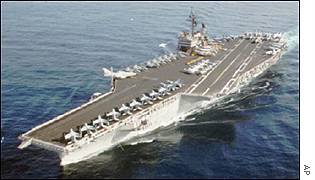 The Freedom Movement
The Freedom MovementThe rapid expansion of the British Empire and the means employed to annex and expand, forced changes in the generations old, well-accustomed life style of Indians and resulted in commotion in different parts of the country. Many minor uprisings were recorded between 1816 and 1855. The last and most severe was the revolt of 1857 -1859 in which many grief-stricken princely rulers, landed aristocracy and peasantry rallied against the British
The revolt was the out come of changes in political, socio economical, religious and military.The revolt shook up the mighty fabric of the British Empire to its very foundations. The empire was able to resolve the mutiny in 1859. Even though the revolt was not an organised National Movement or War of Independence, it exposed the weakness of British Empire and changed the political outlook in India. It also ended the East India Company rule in India as the British Crown took over.
The construction of a vast railway network to facilitate transport by the British also brought the peoples of India in easy reach of each other and helped to spread the idea of Indian unity. As it was impossible for a few foreigners to administer a vast country like India, the British engaged the local elite to help them. They set up an educational system to serve the purpose. But it also helped the Indians to familiarise with the intellectual and social values of the West. Ideas of democracy, individual freedom and equality gained momentum among Indian thinkers like Raja Rammohan Roy, Bankim Chandra and Vidyasagar. The leadership of freedom movement was passed on to this class and Indian National Congress was formed in 1885.
Opposition to British rule began to increase at the turn of the century. The Indian National Congress began to push for a measure of participation in the Government of the country. An unpopular attempt to partition Bengal in 1905 resulted in mass demonstrations against it. Launching of the Swedeshi Movement brought the freedom movement to the common man by leaders like Bala Gangadhar Tilak and Aurabindo Ghose. But Mohandas Karamchand Gandhi, the most charismatic leader of the century, mobilised the people into an invincible force against the British in the freedom struggle.
Mahatma Gandhi
Mohandas Karamchand Gandhi was born in Porbander on October 2, 1869. Educated in London, he returned to India to practice law. In 1893 he went to South Africa on a job assignment. During the 20 years he was in South Africa, Gandhi struggled for the elementary rights for Indians. He preached passive resistance. He was jailed many times and in 1914 he was able to achieve many concessions from South African Government. After completing his contract in South Africa, Gandhi returned to India.
Back in India, Gandhi became a leader in the struggle for home rule. He launched his movement of passive resistance against the British gaining millions of followers. A demonstration against Rowlett Acts, which gave sweeping powers to the colonial authorities, resulted in a massacre of Indians in Amritsar by British soldiers. When the British Government failed to amend the act, Gandhiji proclaimed an organised campaign of non co-operation. People boycotted public offices, government agencies schools etc. His 'swaraj' movement advocated the boycott of British goods and revival of cottage industries. He lived a spiritual and ascetic life of prayers, fasting and meditation and advocated non-violence. Gandhi became the international symbol of free India. And people called him 'Mahatma'.
In 1921 Indian National congress gave Gandhiji complete executive authority including the power to nominate his successor. In 1922 he was again arrested and imprisoned. After his release in 1924, Gandhiji withdrew from active politics and concentrated on communal unity. But he was again drawn in the main stream of freedom movement. In 1930 Gandhiji proclaimed a new campaign calling on the Indian masses to refuse to pay tax for salt. In the campaign he marched to the sea with thousands of followers and made salt by evaporating seawater in defiance to the British. In 1931 he ceased the campaign after British heeded to his demands. During his campaigns he fasted for long periods several times and fast was an effective measure against the British.
In 1934, Mahatma formerly resigned from politics being replaced as leader of Indian National Congress by Jawaharilal Nehru. He travelled throughout India preaching 'Ahimsa'. In 1935 British granted India limited home rule. In 1939 Gandhiji again returned to active politics because of the pending Federation of Indian principalities with the rest of India.
By 1944 the Indian struggle for independence reached its final stages. The British Government had agreed to independence and initiated a number of constitutional moves to effect the transfer of power. Because of various developements, partitioning of the country was inevitable to achieve freedom. Mahatma was against partitioning the country but he ultimately has to agree.
After the partition, millions of people were forced to move to and from India and Pakistan and communal riots errupted. Mahatma pleaded to the people to live in communal harmony and fasted till the riots ceded. On January 30, 1948, as he was on his way to his evening prayer meeting, a Hindu fanatic, Nathuram Godse assassinated him. Mahatma Gandhi was the most remarkable and charismatic leader of the 20th century, perhaps in history.
http://www.indtravel.com/welcome/history7.html




